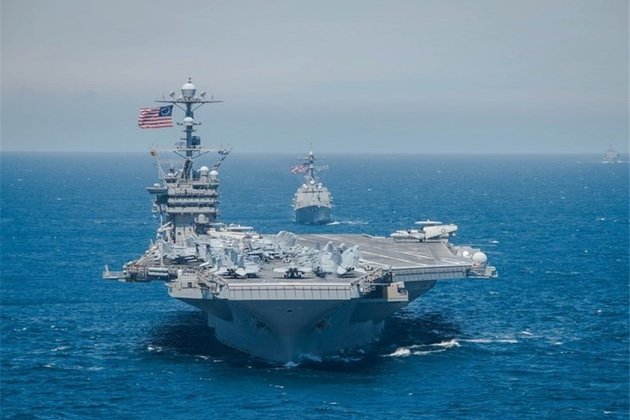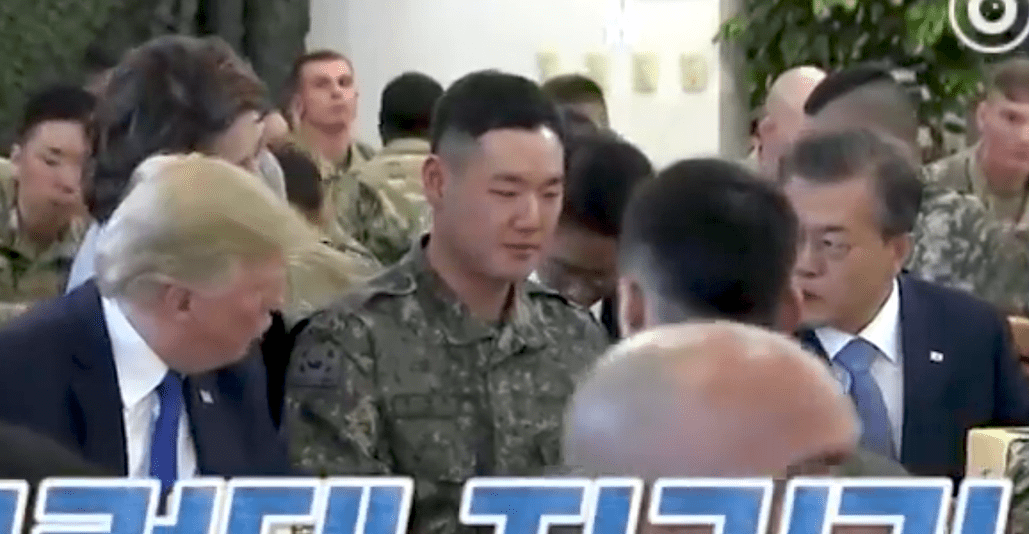Politics
A new era for India–Sri Lanka relations?
Authors: Geethanjali Nataraj and Richa Sekhani, Observer Research Foundation
After tense ties during the Rajapaksa administration, newly elected Sri Lankan President Maithripala Sirisena’s decision to visit India on his first overseas trip signifies a renewal in the India–Sri Lanka relationship.

Sirisena and Indian Prime Minister Narendra Modi signed four significant agreements, all of which are expected to play an important role in further strengthening India–Sri Lankan relations. Most importantly, the two countries promised to cooperate on the peaceful use of nuclear energy. Since 2010 the Sri Lankan government has intended to use nuclear energy for medical and agricultural purposes. The recent agreement focuses on knowledge and resource sharing, training in the peaceful use of nuclear energy and cooperation in radioactive waste management and mitigating the potential for disasters.
The two countries also signed an agreement on cultural cooperation. This agreement planned for 2015–18 envisages enhancing cooperation in a variety of fields including performing arts, libraries, archives and documentation, publications and professional exchange.
The fisherman issue between India and Sri Lanka was also discussed during the visit. There have been numerous incidents in the Palk Strait of the Sri Lankan Navy firing on and imprisoning Indian fisherman who use mechanised trawlers and practice illegal fishing methods that destroy Sri Lankan fishing boats. Both leaders pledged a ‘constructive and humanitarian’ approach to resolve the issue which will encourage dialogue between fishermen on both sides.
On the issue of ethnicity, both leaders discussed the efforts of the Sri Lankan government to restore friendly ties with the ethnic Tamil minority. The Sri Lankan government has made little effort so far to restore the trust in Tamil elites after the war with Tamil rebels in 2009. This has led to complaints from the Tamil population in India, who have voiced concerns about the slow progress of reconciliation efforts.
The two governments also signed memorandums on the establishment of Nalanda University, which will allow Sri Lanka to participate in projects at the University, and agriculture cooperation, which will facilitate cooperation in agricultural processing, machinery and farm training.
During the previous Sri Lankan administration, mistrust between India and Sri Lanka on regional security increased. Sri Lanka–China relations were strengthened due to increased Chinese infrastructural investment in Sri Lanka and Colombo’s support for a maritime trade route that would permit Chinese submarines to dock along the Sri Lankan coastline. But the recent visit has gone some way to relaying India’s concerns over the changing regional security situation. Discussions on enhancing defence and security cooperation in the existing trilateral format with the Maldives has also helped to rejuvenate a sense of trust between both the countries.
Regionally, India and Sri Lanka both participate in several multilateral organisations such as South Asian association for Regional Cooperation (SAARC), South Asia Co-operative Environment Programme, South Asian Economic Union and BIMSTEC. All these organisations aim to enhance their commerce.
In 1998, India and Sri Lanka signed the India–Sri Lanka free trade agreement (ISFTA) which has proved to be a successful initiative. Bilateral trade between both countries was US$4 billion in 2012 and India is now the fourth largest investor in Sri Lanka with an investment of about US$160 million.
While India’s ability to help Sri Lanka address its infrastructure deficit is limited, Modi pushed for greater political and trade linkages.
Working off at the success of ISFTA, both the countries are now trying to negotiate a comprehensive Economic Partnership Agreement (CEPA) to further enhance links and include other key areas in the agreement. But scepticism by the critics of CEPA has obstructed the negotiations. Modi has promised to take the bilateral relation to a new level and this may help resume the stalled talks on the CEPA. His upcoming visit to Sri Lanka in March is an opportunity for India to further cement the relationship.
Diplomacy has won out during this visit, with four major agreements signed. While the Rajapaksa administration seemed to favour China and Pakistan, the new Sri Lankan government is signalling that India is finally back on its agenda. But amid the pro-China lobby in Sri Lanka, it won’t be an easy task for the Sri Lankan government to lessen Chinese investment influence.
What remains to be seen is how Sirisena will proceed with his ‘balanced foreign policy’ approach to maintain diplomacy with both China and India. India will certainly be watching when he visits China in late-March.
Geethanjali Nataraj is a Senior Fellow at the Observer Research Foundation and Policy Lead at Knowledge Partnership Programme, DFID-IPE Global.
Richa Sekhani is a Research Assistant with the Observer Research Foundation, New Delhi.
See the original post here:
A new era for India–Sri Lanka relations?
Politics
US Navy Carrier Conducts Exercises in South China Sea

TEHRAN (Tasnim) – A US Navy aircraft carrier conducted exercises in the contested South China Sea on Friday, the US navy said in a statement. –
A strike group led by the USS Ronald Reagan conducted flight operations and high-end maritime stability operations and exercises, the statement said, Reuters reported.”Integration with our joint partners is essential to ensuring joint force responsiveness and lethality, and maintaining a free and open Indo-Pacific,” US Navy Commander Joshua Fagan, Task Force 70 air operations officer aboard USS Ronald Reagan, was quoted as saying.The drill comes amid heightened tensions between the United States and China.
Washington has criticized Beijing over its novel coronavirus response and accuses it of taking advantage of the pandemic to push territorial claims in the South China Sea and elsewhere.The United States has long opposed China’s expansive territorial claims in the South China Sea and has sent warships regularly through the strategic waterway.China has objected to such exercises and said the US rejection of its claims in the South China Sea has raised tension and undermined stability in the region.China claims nine tenths of the resource-rich South China Sea, through which some $3 trillion of trade passes a year. Brunei, Malaysia, the Philippines, Taiwan and Vietnam have competing claims.
Politics
How China is using tourism for geopolitical goals
The Chinese government has a degree of leverage over its tourists that other governments do not enjoy. Many Chinese tourists are new to international tourism and have limited international language abilities

Decades of astonishing economic growth have given China new tools for extending its influence abroad and achieving its political goals.
(more…)












